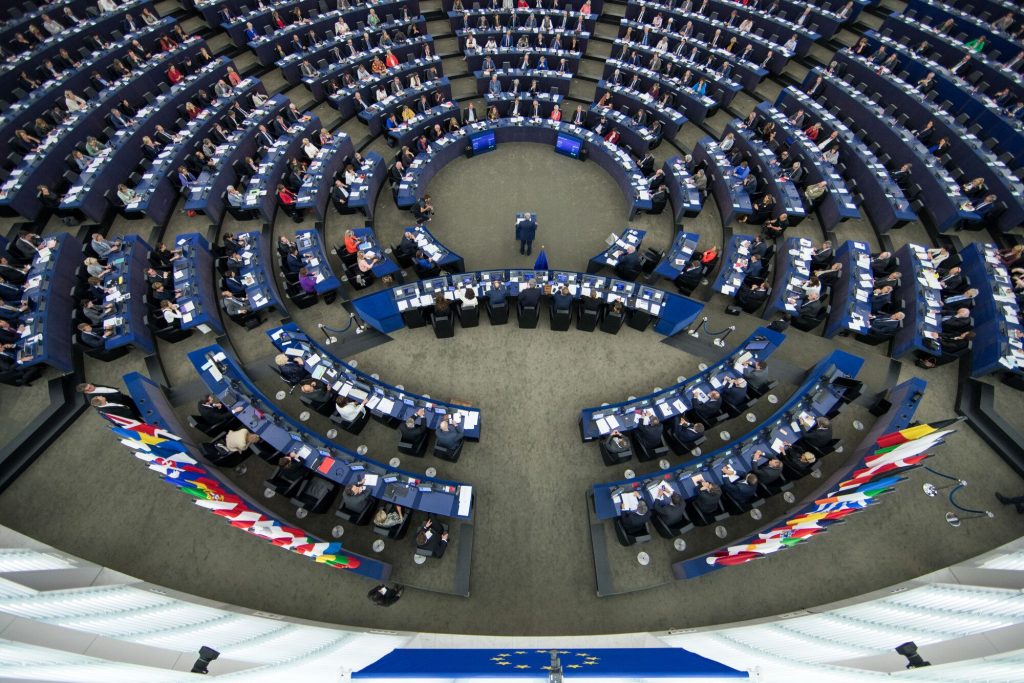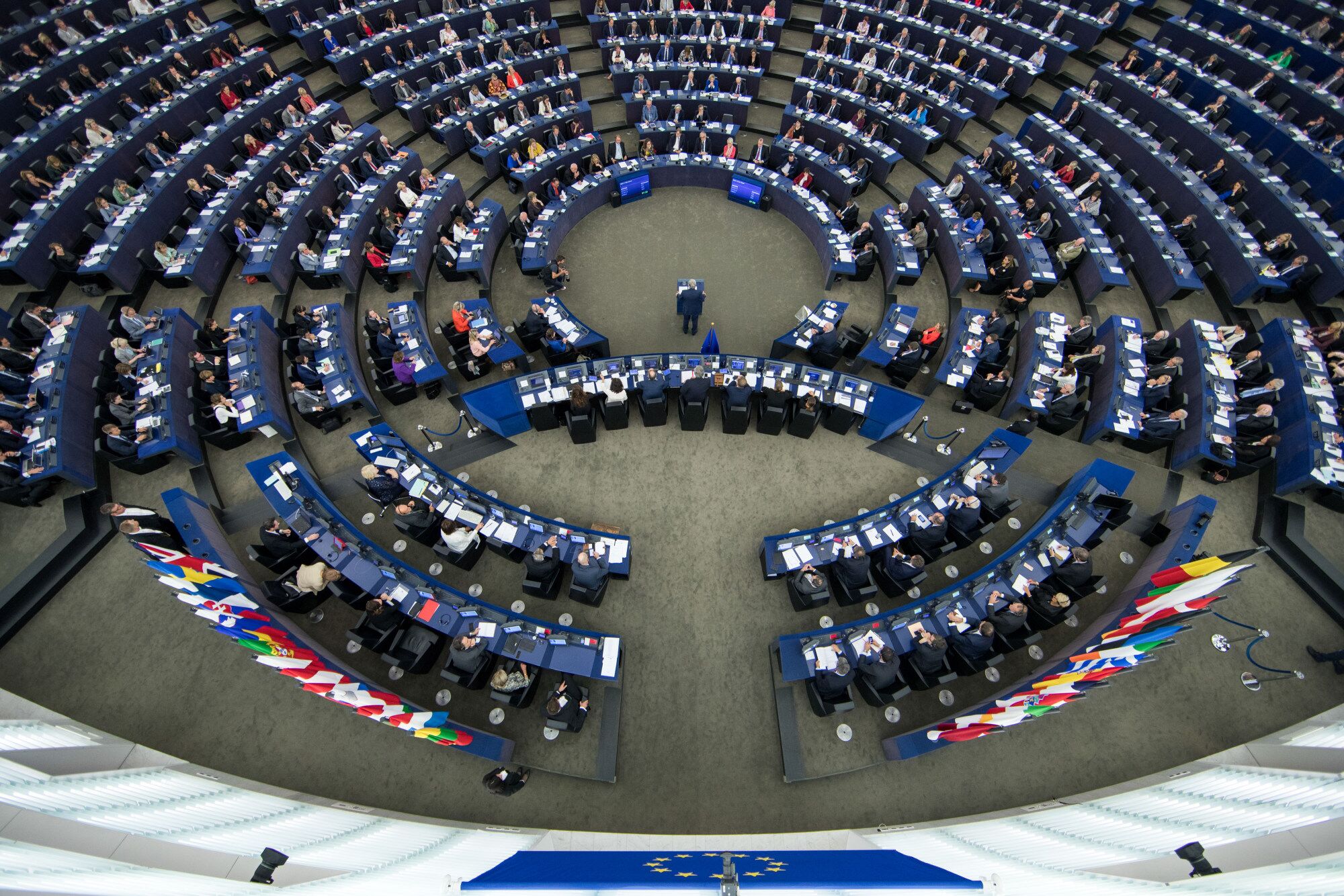








In the shadow of the Russo-Ukrainian war, Europe confronts falling inflation, escalating NATO support for Ukraine, widespread farmer protests, and rising political tensions ahead of elections.


Welcome back to Europe Brief, where we take a look at the enduring impact of the Russo-Ukrainian war on Europe’s economic landscape and political stability. Amidst the backdrop of a continent grappling with the highest inflation rates since the 1970s, now starting to stabilize, the geopolitical chessboard sees NATO intensifying its commitment to Ukraine as the conflict shows no signs of abating. Meanwhile, the streets of Brussels and other European capitals are alive with the unrest of farmers protesting EU policies, a reflection of deeper economic grievances and social strains. As we navigate through these tumultuous times, with NATO’s support for Ukraine under the spotlight and political tensions simmering ahead of crucial elections, the fabric of European unity and resilience is tested.
With the start of the Russo-Ukrainian war in 2022, Europe had the highest inflation rates since 1970s, high life costs and high energy prices that have never been witnessed for decades. Eurozone annual inflation rate even reached the highest level ever recorded which is 9.2% according to Eurostat in 2022; this annual inflation rate was 2.9% in 2021 just before the war broke out in February 2022, and now Eurozone inflation rate falls to 2.4% vis-à-vis 9.2% last year this time. This further shows that Eurozone economy is in the process of recovering however, European Central Bank President Christine Lagarde warned for the possible risks ahead.
The war in the European continent has created significant downturns and brought many political and economic changes and pitfalls for both sides, the West and Russia. There has been a significant paradigm shift in the European continent. Europe, which has not seen any major war in its continent, faced with the cold reality of war on its doorsthat Russia started by invading Ukraine.
Since the beginning of the war in 2022, for the first time Ukraine seems to be losing the overall control in the battlefield against Russia and in this cataclysmic atmosphere ahead of the NATO’s 75th anniversary, Foreign Ministers from 32 NATO member states came together in Brussels for a High Level Summit and it appears that alongside with NATO’s 75th anniversary, the support for Ukraine, meeting with Indo-Pacific partners and EU, and NATO’s southern neighbourhood were the utmost priorities listed by NATO.
Considering the fact that Russia is gaining ground in Ukraine, NATO is committing further aids and supports for Ukraine. For instance, long waited US aid package to Ukraine is predicted to be released after the US Congress returns from recess. Therefore, we can argue that NATO members’ and US’s support for Ukraine will continue in the future, but the question arises at the point that, could these additional aids bring an end to the war and bring stability in the region while convincing the Western public that further aids and supports can create a difference.
Moreover, the problems in Europe do not appear to have ceased to exist. For months, farmers’ protests in European capitals and particularly in Brussels continues at intervals. Farmers and unions of farmers are focusing their protests in the heart of EU since all the supranational decision making systems are located in Brussels. In Brussels, farmers from different natinonalities come together and try to force policymakers to act. Although the farmers obtained some concessions in some member states, the unions see these concessions as insufficient and they remain firm at forcing EU policymakers to act.
Most problematic issues appear to be: governments’ insufficient subsidies for agricultural diesel and vehicle tax for agricultural vehicles, temporary suspension of import duties and quotas on Ukrainian exports to the EU and European Commission’s proposal to renew this decision triggered major outbursts towards EU policies. Furthermore, protests remain as an important tool for angry farmers and unions of farmers as they try to force policymakers in Brussels into taking decisions in their favour.
The current condition, what farmers gained or which concessions have been given is still not clear however, what is clear is the fact that the anger of farmers will not cease to exist without proper policies addressing their needs and consequently making them open to manipulation by far-right parties as they are trying to attract supporters for their ideologies to consolidate in the European elections this June.
In the face of persistent challenges such as economic downturns, political upheavals, and humanitarian crises, the EU’s response carries the risk of unintended repercussions. These could include the consolidation of far-right movements across Europe and a further deteriotation of the democratic deficit problem within the EU.
Written By: BATUHAN GUNES
Written By: KRISTIN HYNES
Written By: ERIC SONG
Written By: ALEXANDER BERGH
Written By: KATE-REID SMITH
Written By: JOSEF SCHOEFL
Written By: PATRIC MCFARLAND
Written By: FATIH CEYLAN
FA’s flagship evening newsletter guilding you through the most important world streis ofthe day. Delivered weekdays.
